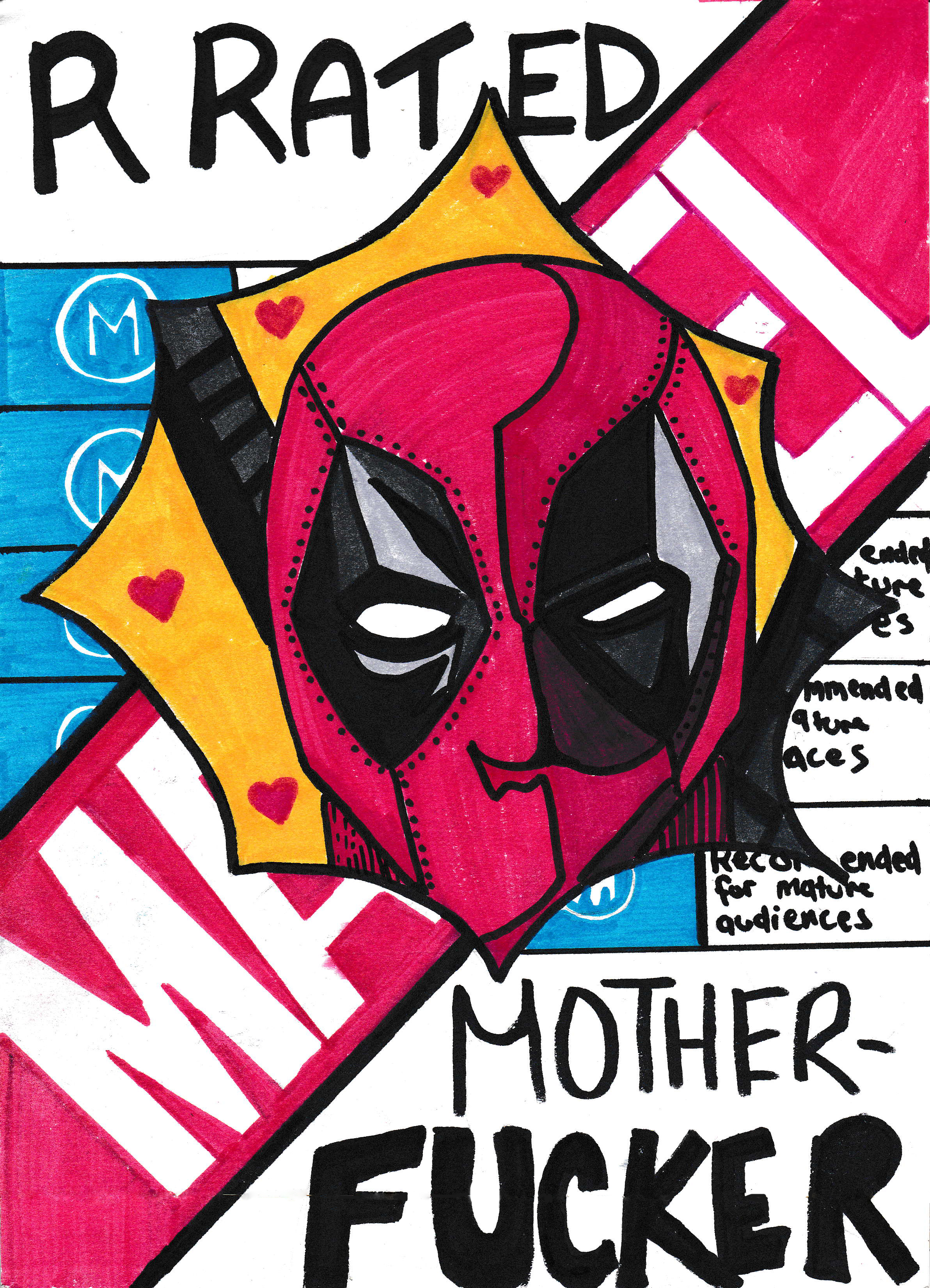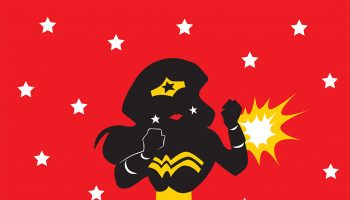Some of Hollywood’s box office successes over the past year have heavily emphasized their ability to appeal to a wide, family-friendly target audience. With this in mind, it’s no surprise that many big titles such as Guardians of the Galaxy, Avengers and Star Wars rely on keeping their content PG. It not only allows younger, upcoming fans to view these movies, but also a large segment of the public to involve themselves into the culture and fan base that these movies have created. With the release of Deadpool and its heavily appreciated R-rating, a new stream of fans has emerged that Hollywood had yet to really take advantage of. The tale of a bloodthirsty mercenary with a penchant for juvenile humour, Deadpool challenges the previous trend of comic book heroes that seem so focused on appealing to the younger crowd, and potentially splits the demographic between them and older die-hard fans.
The idea of releasing a movie for one of comic book’s most entertaining characters was surely about appealing to a specific group. Fans of Deadpool were already familiar with the character’s dark humour and gory violence (from his long comic history and a 2014 video game tie-in) before the movie had even released. Using an R-rating was a matter of staying true to the character’s origins, rather than altering a story to allow for mass market appeal.
It gave a sense of ownership to fans who knew exactly what to expect in the movie, along with allowing the director to play around with the film’s comedy without the limitations of possibly offending a younger audience. In fact, one of the biggest reasons this movie had been so highly anticipated was because fans could finally see a character that had no restrictions in his performance, and could play out as extravagantly as the script required.
One of the drawbacks to any R-rated movie is the limited number of viewers your movie could have. Yet despite this, Deadpool has broken several box office records such as biggest R-rated opening weekend, and biggest opening weekend for a first-time director. This could indicate that by bringing a purely fan-focused film adaptation of a comic book character, viewers are left more satisfied. They are also left more supportive of movies that choose to go beyond the usual kid-friendly trend in comic book movies.
Film studios have already experimented with R-rated comic book adaptations in the past, and produced titles such as Watchmen, 300 and Sin City that have not been as memorable. While these movies did produce some impressive numbers and gained a fair amount of critical acclaim, their impact on the general public was limited because of their R-rated content. Their ability to create a fan culture (including a demand for sequels, merchandise, and cosplay) could only go so far without being exposed to a younger generation of viewers.
However, Deadpool has been enough of a success to possibly reinvent the R-rated comic-book genre, and could potentially open up a new era of hero and antihero (I’m looking at you, Carnage) adaptations. This could very well be a trend that has already taken its course, as there has already been mention of a director’s cut edition of Batman vs Superman with an R-rating attached.
Keeping a PG rating has also allowed superhero movie franchises to break into merchandising via toys, books, and costumes. This is a market that’s not as easy to be involved in as an R-rated flick. Another arguably more irritating factor is criticism from parents and other guardian groups looking out for their own children. It’s pretty upsetting that despite the maturity implied with the R-rating, there are still members of the public that look to shamelessly demand censorship and diminish the creative effort of movie makers.
The most appalling example I’ve seen has been a petition by concerned mother Grace Randolph, to release a PG-13 version of Deadpool that already has nearly four thousand signatures. “If there was a PG-13 version he could, and his mom Kristina could be a superhero rather than a super-villain…” claims Randolph as she refers to Matthew, an 8 year old boy of another concerned mother who is clearly not appropriate to view the movie.
It’s scenarios like these that raise the question: When does the blame shift from the (openly specified) violence and graphic nudity in movies, to the clueless and unprepared viewer?
There always seems to be a minority of viewers that publicly go against the content of controversial movies, and those in the R-rated genre are no strangers at being criticized by the disapproving eyes of the internet. Luckily, if done right, movies like Deadpool can satisfy enough fans and like-minded viewers to overcome any criticism from the unprepared. This movie has set an example for directors and studios. It’s a successful comic book adaptation that has taken a unique approach to storytelling, allowing Deadpool as a character to play to his fullest potential. Its R-rated antics have been accepted as a breath of fresh air, and it’s made a large enough impact that’s continuing to gain attention for its ability to break out of the PG loop and into the zone of R-rated performances. Despite all the backlash, a good comic book film should only be judged by its appeal to its fans and mastering the identity of a character that’s only previously been seen on paper. While most comic book franchises continue to remain loyal to the PG market, Deadpool has proven that a movie can still be successful outside of the norm so long as it remains loyal to its origins



